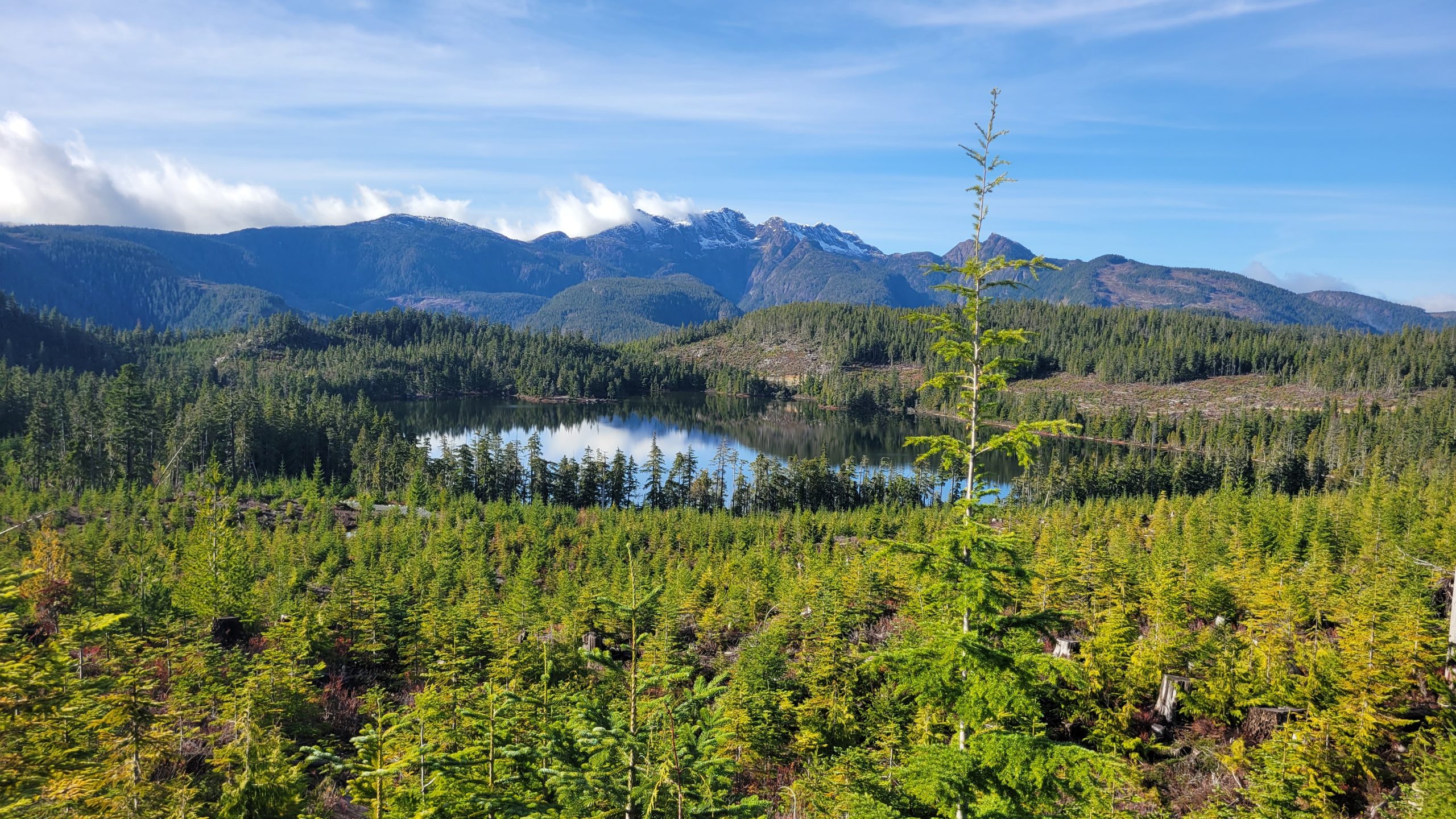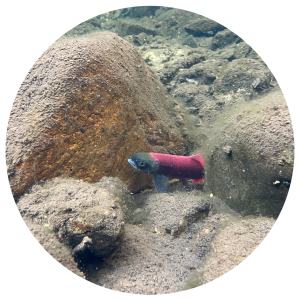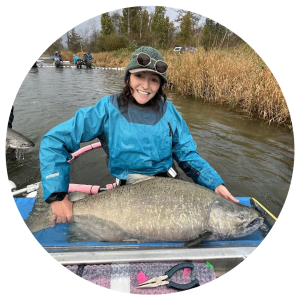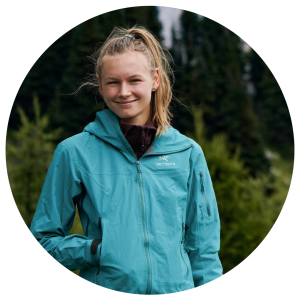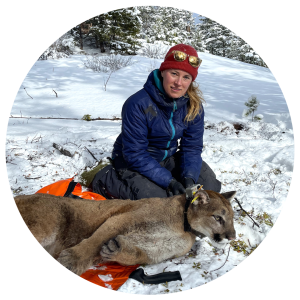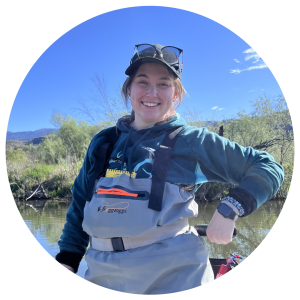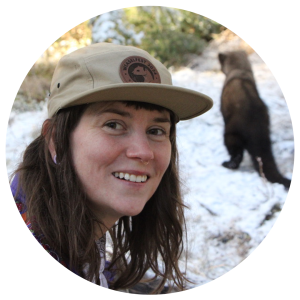HCTF and HCTF Education are proud to announce the 2025 Al Martin Conservation Scholarship recipients: Olivier Jumeau, Alicia Woods, Noa Mayer, Torrie Nicholas, Larisa Murdoch, Grace Melchers, Julie Thomas, Selena Carl, and Shannon Werden.
The Al Martin HCTF Conservation Scholarship is dedicated to supporting graduate students who are passionate about fish or wildlife conservation and management in British Columbia. Each recipient is awarded a $10,000 scholarship to further their research. This year, HCTF has expanded the number of Al Martin Scholarship recipients to nine students from various post-secondary institutions across BC.
These scholarships are in honour of Al Martin, a highly respected figure in conservation. Al began his career in 1977 as a biologist in Penticton, BC, and held several key positions over the years, including Fisheries Manager, Director of the Watershed Restoration Program, Director of the Fish and Wildlife Branch, Executive Director, and Assistant Deputy Minister of Agriculture and Fisheries. After retiring from BC public service, Al continued to lead in conservation as the Director of Strategic Initiatives for the BC Wildlife Federation and served on HCTF’s board. Although Al passed away in October 2019, his legacy of integrity, humour, and passion for preserving fish and wildlife habitats for future generations lives on.
HCTF is proud to invest in the future of conservation by supporting students like these.
2025 Recipients
Olivier Jumeau
Olivier is a master’s student from Thompson Rivers University. His research working alongside Ulkatcho First Nation aims to provide a baseline of information to inform indigenous management of caribou habitat. By integrating Ulkatcho oral history, Dakelh linguistics and caribou-centric plots, and a holistic approach towards assessing habitat, Olivier hopes to better understand post fire habitat usage by caribou
Alicia Woods
Alicia is a PhD student working out of the University of Northern British Columbia. Her research is working to assess the responses of Stone’s sheep habitat treated with prescribed fire. To determine this, changes in forage quality, sheep diet, and stress hormones will be measured on burned and unburned sites before and after the habitat is burned. Alicia’s results will provide recommendations for the use of prescribed burning as a habitat management tool for Stone’s sheep and contribute to landscape management planning.
Noa Mayer
Noa is a doctorate student at the University of British Columbia. Their work, focusing on Kokanee salmon, is examining potential adaptions of Kokanee salmon that have allowed them to remain more abundant than other salmon species that are in decline due to climate change. Noa’s research seeks to answer how Kokanee respond to heat stress, what biological markers indicate when salmon are struggling, and which populations are most at risk as rivers continue to warm? This research aims to protect Pacific salmon and the communities that rely on them, ensuring these iconic fish persist despite a rapidly changing climate.
Torrie Nicholas
Torrie is a master’s student from Thompson Rivers University. Torrie’s research is focused on the impacts of predation on Chinook salmon by invasive Smallmouth bass. Working with the Okanagan Nation Alliance and the Department of Fisheries and Oceans Canada, Torrie is exploring the potential that Smallmouth bass are preying on juvenile salmon in key rearing and migrating habitats. To determine if this is the case, she will be analyzing the stomach contents of approximately 200 Smallmouth bass collected in the Okanagan area. This research will provide critical data to support conservation management strategies, mitigating threats to sk’lwist populations in the Okanagan.
Larisa Murdoch
Larisa is a master’s student at Thompson Rivers University. Larisa is studying whether female bighorn sheep select rugged, steep terrain—known as escape terrain—during the lambing season and how the availability of such terrain influences their ability to give birth and raise their young safely. Additionally, she is exploring whether herds are more successful when they have better access to escape terrain and the impact of cheatgrass on bighorn sheep movement patterns.
Grace Melchers
Grace is a master’s student studying at the University of British Columbia. Her research in partnership with the Tsleil-Waututh Nation, uses beach seining and eDNA to uncover the mysteries behind the early marine life stage of salmon entering Burrard Inlet, the water body supporting Canada’s largest port and BC’s largest city. Using eDNA Grace hopes to determine migration routes, preferred habitats, and possible interactions between fish that might occur during this stage that could affect their survival.
Julie Thomas
Julie is a PhD student attending the University of Northern British Columbia. She is researching the impacts of cougar predation on Woodland caribou. Specifically, Julie is examining if feral horses are allowing cougars to exert more pressure on caribou by providing an additional food source to cougars, if increased feral horse abundance post fire is forcing caribou further into cougar ranges, and if the removal of cougar competitors (wolves) is allowing for a greater abundance of cougars. This research will improve our understanding of the predator-prey relationship of cougar and caribou, which has direct implications for woodland caribou recovery in BC and beyond
Selena Carl
Selena is a master’s student currently studying at Thompson River University. Selena’s work on the geographically distinct chinook salmon population in the Okanagan- Columbia River system seeks to address three knowledge gaps about this culturally important species. First the survival rate of hatchery juveniles, second what habitat is being used by juvenile chinook salmon and third is their outmigration behaviour. Results from this study will inform restoration efforts and recovery planning for this culturally and ecologically significant species and contribute critical insight to support their survival and recovery.
Shannon Werden
Shannon is a master’s student conducting their research at Thompson River University. Her research seeks to address critical knowledge gaps in the reproduction and habitat use by fishers in the Interior Douglas-fir biogeoclimatic zone. To fill this knowledge gap Shannon will be tracking adult female fishers using radiotelemetry. Additionally, she will be assessing habitat quality to determine the drivers of reproductive output. By linking reproductive success to habitat characteristics, this research will help identify mechanisms limiting population growth and inform science-based forest management strategies.
If you or someone you know is interested in applying for the Al Martin Scholarship click the link below.


